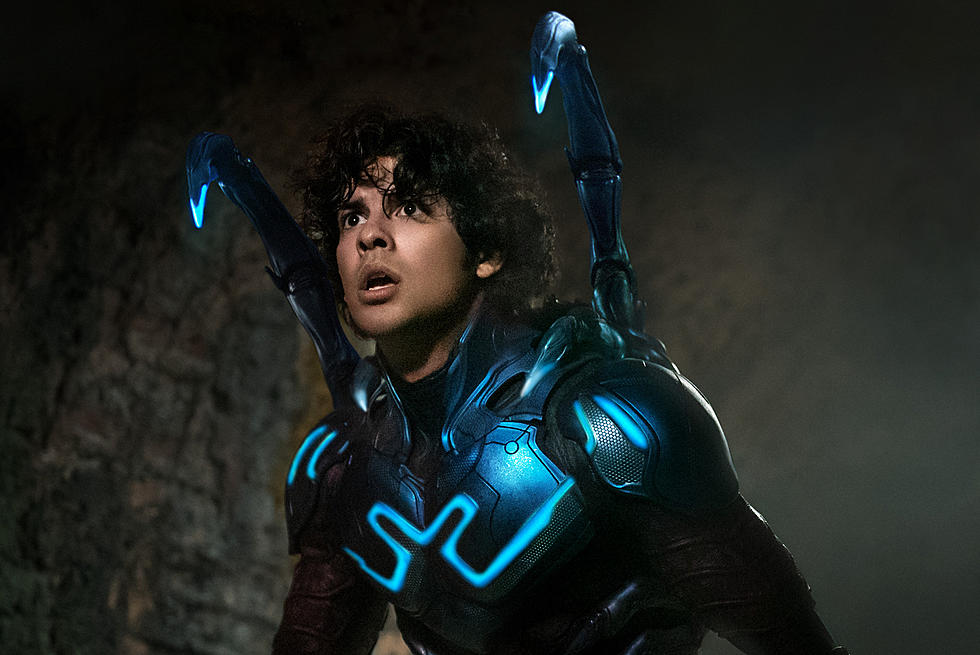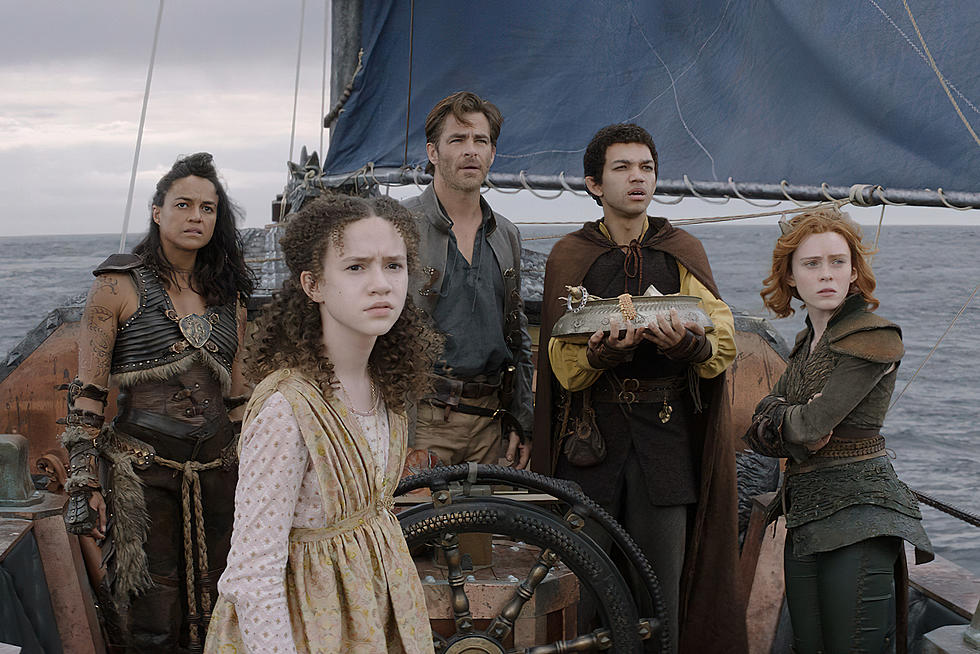
‘Widows’ Review: A Smart, Crowd-Pleasing Heist Thriller From Steve McQueen
Steve McQueen is a master of artful, searing dramas about fraught masculinity and suffering. Gillian Flynn is known for her twisty page-turners led by complex women carrying the burdens of trauma. Those two many not seem like the most likely of collaborators, but we get a beautiful marriage of their talents with Widows, a crowd-pleasing heist thriller with plenty on its mind.
The Oscar-winning 12 Years a Slave filmmaker teamed up with the Gone Girl and Sharp Objects author to co-write the script for Widows, based on the 1980s British crime drama TV series of the same name. That show, created by Lynda La Plante, followed a foursome of women who, after their criminal husbands are killed during a robbery gone wrong — hardly a spoiler considering the title — decide to finish the job themselves. As deliciously fun as that sounds, I admittedly entered Widows a little skeptical. Had McQueen sold out to make a mindless blockbuster of cheap thrills? But of course he hasn’t; his Widows merely uses that premise as an entry point to investigate topics of race, gender, wealth, and privilege.
The opening sequence sets up the players of the heist, cutting between the women unknowingly sharing their final morning with their husbands and the men later carrying out what will be their last heist. We meet Liam Neeson’s Henry Rawlings, Jon Bernthal’s Florek, and Manuel Garcia-Rulfo’s Carlos as they flee from police fire after a robbery gone south. But the men are only there to set up the plot, quickly exiting the film and leaving room to explore the women. The female ensemble includes a fierce-as-ever Viola Davis as Henry’s wife, Veronica; Michelle Rodriguez, bringing poignant new notes to her usual tough girl act as Linda, a dress shop owner; Elizabeth Debicki is a standout as a Alice, whom we first meet with a black eye; Carrie Coon, who makes the most out of minimal screen time as the anxious mother of a newborn; and Cynthia Erivo’s Belle, a single mother juggling multiple jobs to support her daughter.
After the men’s robbery ends with a fatal explosion, the women aren’t just left in mourning, but without any financial support or security to keep their lives and families afloat. One loses her business, another resorts to a sugar daddy dating site, and Veronica becomes the target of the local Chicago politician her husband stole from, Jamal Manning — played by Atlanta’s Brian Tyree Henry in one of two standout supporting roles at the Toronto Film Festival this year (the other is the new Barry Jenkins film). She has one month to pay him back $2 million, so she recruits the other grieving wives to pull off what would’ve been her husband’s next heist.
What makes Widows such a unique and smart addition to cinema’s long history of heist thrillers is the world it exists in — one that we know and live in right now. McQueen’s film is about ordinary Americans, and most notably minorities, who are pushed to engage in crime out of desperation. These women don’t plot a robbery for the sake of greed or the sheer adrenaline rush of it. Unlike the Danny and Debbie Oceans of the world, these women simply haven’t been afforded the privileges that come with a life of crime by choice; for them, it’s a means of survival. Widows may be a commercial thriller, but it's one about women freeing themselves from cycles of abuse and breaking away from a life of being exploited by and indebted to men.
As we watch the women plot the heist, we also see them struggle with the weight of the repercussions; in one scene Linda, a lower-middle class mother, stops to remind Veronica and Alice — the two most accustomed to lives of luxury and designer wardrobes — that they could get caught, asking them, “Do either if you even know what prison is like?” If this summer’s Ocean’s 8 was a breezy fantasy about the fun of breaking the law in a world free of consequences, Widows is one about real people taking back power from the systems stacked against anyone who isn’t a white man in modern day America. And that’s not just touched on through the women either. A sub-plot follows a local election between Jamal and Colin Farrell’s Tom Mulligan, a corrupt politician and son of a manipulative broker (a crotchety Robert DuVall), whose Irish family has wielded power over an historically black district for decades.
However, none of that means McQueen has sacrificed entertainment at the expense of making a more sociologically-oriented crime thriller. If anything, I’ve probably undersold how fun of a ride Widows is overall — I mean, this is a movie where Viola Davis walks into nearly every room with a jaw-dropping outfit, carrying an adorable Westie while exuding cutting intensity and poise; what’s not to love? The rest of the performances are just as excellent, including a menacing brute played by Daniel Kaluuya, who sends chills down your spine with his terrifying death stare. There’s also a couple of thrilling, trashy twists that you can certainly see Flynn’s influence all over, and though predictable, they land with a satisfying bang that’ll make you want to whoop and cheer with delight.
And then, of course, there’s McQueen’s masterful filmmaking, assisted by his usual cinematographer, Sean Bobbitt (Hunger, Shame, 12 Years a Slave). He breathes prickly tension into the most violent scenes with balletic camera twirls — one that features Kaluuya, a gun and a rap battle is one of the best moments in the movie — and adds a moody atmosphere to the women’s pained, quiet moments of reflection.
Though Widows isn’t as exceptional as McQueen’s previous work, his style elevates it well beyond any generic big studio genre film. It’s a first-rate popcorn thriller that dazzles you and gives you something thoughtful and timely to chew on.
More From ScreenCrush









